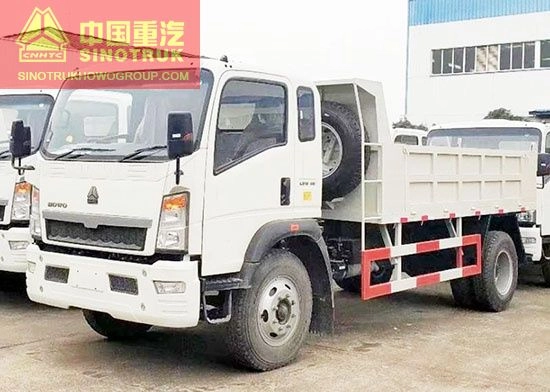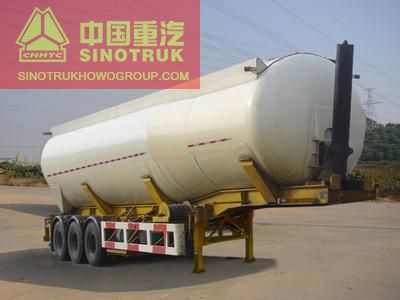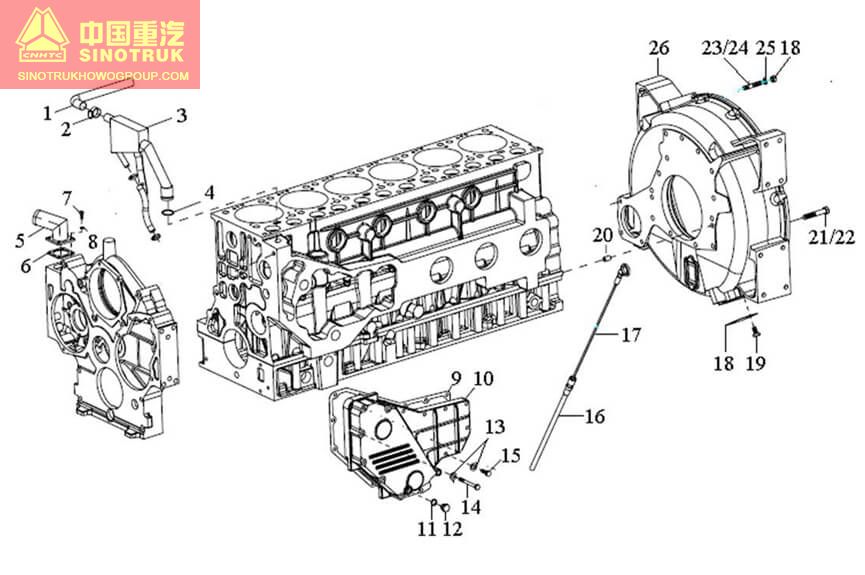medium duty truck fuel tanks,how much fuel does a truck use
- Release time:05-05-2024
- Source:Sinotruk HOWO
Catalog overview:
Introduction to Medium Duty Truck Fuel Tanks

Medium duty trucks, the workhorses of the transportation industry, rely heavily on their fuel tanks to keep them moving. These fuel tanks, a critical component in the truck's operational efficiency, play a vital role in ensuring long-distance travel and heavy-duty performance. This article delves into the world of medium duty truck fuel tanks, exploring their design, materials, capacity, and the importance of proper maintenance.
Design and Functionality
Fuel tanks for medium duty trucks are designed to withstand the rigors of daily use, with a focus on durability and safety. They are often made from materials like steel or aluminum, chosen for their resistance to corrosion and impact. The design varies, from rectangular shapes that maximize space utilization to more streamlined forms that reduce drag. These tanks are strategically placed to maintain the truck's center of gravity, ensuring stability during transit.
Capacity and Fuel Efficiency
Capacity is a key consideration in medium duty truck fuel tanks. Larger tanks allow for longer driving ranges without refueling, crucial for long-haul operations. the tank size must be balanced against the truck's overall weight and payload capacity. For instance, a 20,000-pound GVWR (Gross Vehicle Weight Rating) truck might have a fuel tank ranging from 50 to 100 gallons, depending on the manufacturer and the truck's specific requirements.
Maintenance and Safety Aspects
Proper maintenance of fuel tanks is paramount to ensure both vehicle performance and driver safety. Regular inspections for leaks, rust, or damage are necessary, as undetected issues can lead to fuel loss or, in extreme cases, fires. Additionally, regular cleaning helps prevent the buildup of contaminants that can clog fuel filters or damage engine components. It's also essential to use the correct fuel type specified by the manufacturer to avoid damage to the engine.
Advancements and Innovations
there have been significant advancements in fuel tank technology. Some manufacturers now offer composite or plastic tanks, which are lighter and more resistant to corrosion. Others incorporate fuel management systems that monitor fuel levels and consumption, aiding in fleet management and cost optimization. For instance, companies like Freightliner's eCascadia electric truck features an innovative fuel tank replacement, a battery pack, demonstrating the evolving role of fuel tanks in the transition towards sustainable transport.
The Heart of the Truck's Powerhouse
medium duty truck fuel tanks are more than just storage units; they are integral to a truck's performance and efficiency. From their robust construction to the latest innovations, these tanks are designed to keep businesses moving. Understanding their function, maintenance requirements, and the ongoing technological advancements is crucial for fleet owners and operators to make informed decisions and maximize their truck's potential. Remember, a well-maintained fuel tank is the heart of a truck's powerhouse, ensuring seamless operations and a reliable journey ahead.
heavy duty truck fuel tanks
1. Understanding Heavy Duty Truck Fuel Tanks

In the world of transportation, heavy-duty trucks are the backbone of logistics, carrying payloads across vast distances. A crucial component of these beasts of the road is their fuel tanks. These aren't just ordinary storage units; they're engineering marvels designed to keep the truck's heart, the engine, running smoothly. Heavy-duty truck fuel tanks, as the name suggests, are built to withstand the rigors of long-haul journeys and demanding work environments.
2. Importance of Fuel Tank Durability
The durability of a fuel tank is paramount in the trucking industry. A robust fuel tank ensures not only fuel efficiency but also safety. It must resist corrosion, withstand extreme weather conditions, and protect against potential leaks or spills. For instance, companies like Freightliner and Peterbilt equip their trucks with high-strength steel tanks that can endure the toughest terrains and weather fluctuations.
3. Capacity and Efficiency
Fuel tank capacity directly impacts a truck's range, determining how far it can travel before needing a refill. Large fuel tanks, such as those found in Volvo's VNL series, can hold up to 150 gallons, significantly reducing the frequency of refueling stops. This is particularly crucial for long-distance hauls, where time is money and every minute spent at the pump is a minute lost on the road.
4. Advanced Features and Technology
Modern heavy-duty truck fuel tanks incorporate innovative features for better performance and convenience. Some, like those in the International ProStar, come with built-in fuel management systems, monitoring fuel levels and consumption for enhanced efficiency. Additionally, many tanks now have protective coatings to resist rust and ultraviolet degradation, extending their lifespan.
5. Maintenance and Safety Considerations
Proper maintenance is vital to ensure the longevity and safety of these tanks. Regular inspections for signs of wear, cleaning to prevent sediment buildup, and timely repairs can avert potential hazards. Companies like Cummins, for example, recommend regular tank draining and cleaning to prevent fuel contamination.
The Heart of the Heavy Hauler
heavy-duty truck fuel tanks are more than just storage spaces; they're integral components that significantly impact a truck's performance and efficiency. From their robust construction to advanced features, they embody the resilience and reliability needed in the demanding world of trucking. Understanding their importance and proper maintenance can make all the difference in keeping these highway warriors on the road, driving commerce and connecting our world.
how much fuel does a truck use
Introduction to Truck Fuel Consumption

Trucks, the backbone of the transportation industry, are known for their impressive payload capacity and long-distance hauling capabilities. their fuel consumption is a significant factor that impacts both the environment and operating costs. Understanding how much fuel a truck uses is crucial for fleet managers, logistics companies, and individual truck owners alike. In this article, we will delve into the various aspects that influence truck fuel efficiency, the average consumption rates, and explore strategies to optimize fuel usage.
Factors Affecting Truck Fuel Efficiency
Several factors contribute to the fuel consumption of a truck, including:
1. Payload: The weight of the cargo being carried directly affects fuel efficiency. The heavier the load, the more fuel a truck will consume to maintain its speed.
2. Engine Size and Type: Larger engines typically consume more fuel, but they also provide more power. Diesel engines, for instance, are generally more fuel-efficient than gasoline engines.
3. Driving Conditions: Frequent stops, steep inclines, and city driving all increase fuel consumption compared to highway cruising.
4. Maintenance: Regular maintenance, such as keeping tires properly inflated and oil changed, can improve fuel efficiency.
5. Driver Behavior: Aggressive driving, rapid acceleration, and hard braking can significantly increase fuel consumption.
Typical Fuel Consumption Rates
Fuel consumption for trucks varies greatly depending on the type of truck, load, and driving conditions. On average, a Class 8 semi-truck (the largest type) with a diesel engine consumes around 6 to 8 miles per gallon (mpg) under optimal conditions. this can drop to as low as 3 mpg in city driving or when carrying heavy loads. Smaller trucks, like a Ford F-150, may achieve 18 to 25 mpg in combined city/highway driving, while a medium-duty box truck might average around 10 mpg.
Strategies for Fuel Efficiency
1. Route Optimization: Plan routes to minimize idling, traffic, and steep inclines, which can all increase fuel consumption.
2. Driver Training: Educate drivers on fuel-efficient driving techniques, such as maintaining a steady speed, using cruise control, and avoiding rapid acceleration.
3. Vehicle Maintenance: Regular maintenance and timely repairs can help ensure the engine operates at peak efficiency.
4. Weight Reduction: Minimize unnecessary weight in the truck, such as removing excess tools or equipment when not in use.
5. Fuel Economy Technologies: Consider modern technologies like engine idle reduction systems, aerodynamic modifications, and advanced fuel injection systems.
Balancing Efficiency and Practicality
Understanding and managing truck fuel consumption is a complex task, influenced by a multitude of variables. By considering the factors affecting fuel efficiency, monitoring consumption rates, and implementing strategies for improvement, operators can strike a balance between operational costs and environmental impact. As technology advances, we can expect more innovative solutions to emerge, making the future of trucking more sustainable and efficient.





